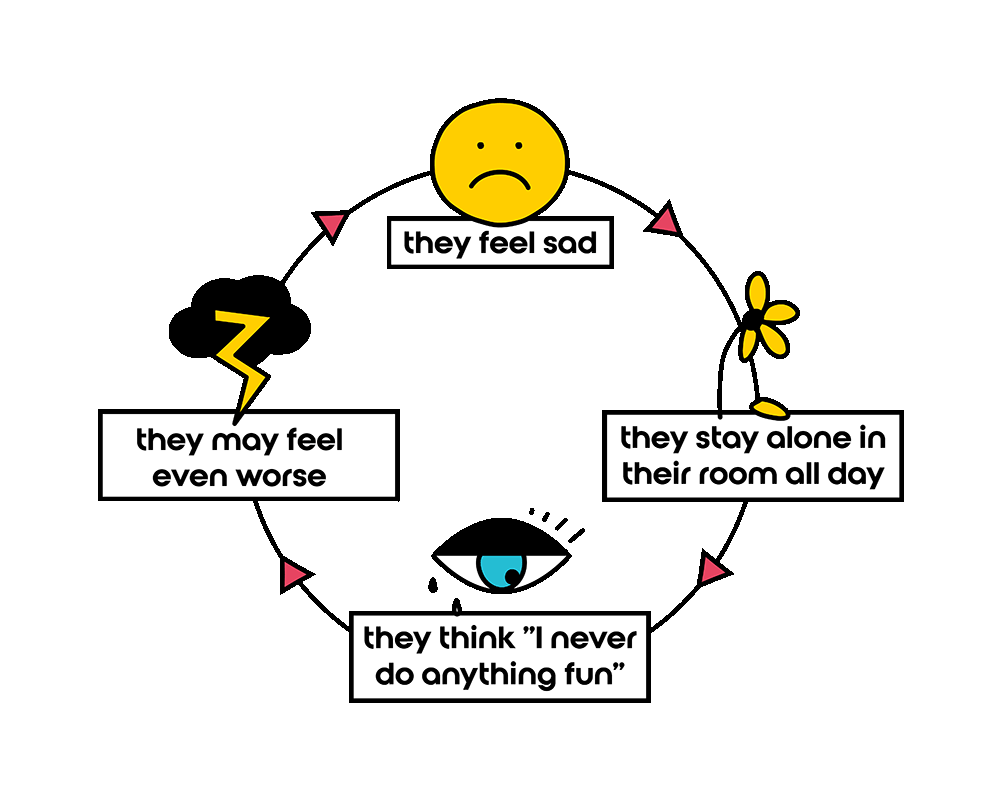When children feel sad or depressed, it may be hard for them to be interested or motivated to do anything, even things they typically enjoy.
Kids can fall into the trap of waiting to feel better to do fun things. What ends up happening is that the less they do, the worse they feel.
What is behavioral activation?
Behavior activation is a way to improve your mood and feel better. With behavior activation, you don’t wait until you feel happy or motivated to do things that matter to you. Instead, you start doing those activities first, with the goal of them helping you feel better.
Low activity, or low behavioral activation, can put children at risk for depression. So it’s important for all kids to engage in daily behavioral activation, doing fun or valued activities, even if it is just a few minutes a day.

![]()
One Solution: Behavioral Activation
Behavioral activation helps children understand how their behavior influences their emotions. We want children to learn that taking action first can motivate them later.
Motivation doesn't have to come before taking action. Children will start to notice that the more they engage in behavioral activation, the better they feel.
And you don’t have to be a therapist to use this strategy.
How to use Behavioral Activation With Your Child
- Step 2: Support your child in coming up with meaningful activities that may help them feel more positive or engaged. Choose activities they want to do simply because they’re fun and make them happy, activities that help them feel proud of accomplishing something, and activities that help them connect with others. The goal is to find a balance between those activities in their day-to-day choices. See our download below for examples to get you started!
- Step 3: Make your goals around these activities realistic. For example, if a child spends most of their day indoors, set a small goal, like going outside for 15 minutes and slowly expanding it over days or weeks. Some children may be ready to try a new hobby or go back to something they used to like doing. Others may need to take smaller steps to get more engaged in something, like sitting on a porch instead of inside their bedroom as a way of working up to spending more time outside or engaging with others.
- Step 4: Celebrate small wins. It can be hard to try something new—especially if the child is dealing with unhelpful thoughts and low motivation. Congratulate them on what they do and support them in continuing the process.
Behavior activation can help any child (or adult) improve their mental health by taking action and doing things that feel good and rewarding. Behavioral activation can create an upward spiral that improves mood and reminds a child that getting out and being active can help.
 Copy Link
Copy Link





